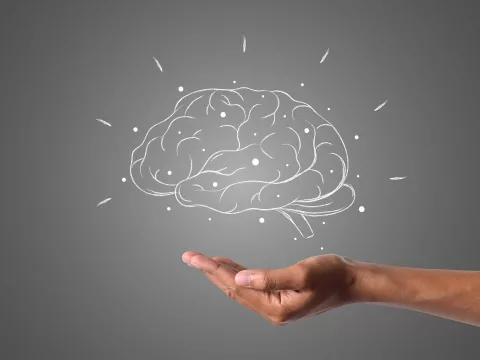
‘The Mindful Path to Nursing Accuracy: A Quasi-Experimental Study on Minimizing Medication Administration Errors’ - Abstract
Holist Nurs Pract 2021;35(3):115–122
Connie Lynne Ekkens, DHA, MT, AMT ; Pamela Ann Gordon, PhD
Achieving error-free health care is critically vital and includes freedom from the occurrence of medication errors, which, as yet, is an unrealized goal in the United States. The purpose of this study was to minimize or potentially eliminate medication errors by adding training in mindfulness thinking to the current system protocol. The goal of this quantitative, quasi-experimental study was to determine whether training nurses in mindfulness thinking founded on the Dossey Integral Theory changed the frequency and severity of medication administration errors. Data analysis included the following steps: recording of data using the NCC MERP (National Coordinating Council for Medication Error Reporting) instrument, statistical analysis using paired t test, and a logistical interpretation of descriptive statistics. An error reduction of 73.3% between pre- and post-training mean for the experimental group was observed. This study may add to the limited body of research related to mindfulness and the resultant reduction in medication errors.

Brief, daily meditation enhances attention, memory, mood, and emotional regulation in non-experienced meditators
Behavioural Brain Research
Volume 356, 1 January 2019, Pages 208-220
Julia C. Bassoab; Alexandra McHalea; Victoria Endea; Douglas J. Oberlina; Wendy A. Suzukia
Abstract
Meditation is an ancient practice that cultivates a calm yet focused mind; however, little is known about how short, practical meditation practices affect cognitive functioning in meditation-naïve populations. To address this question, we randomized subjects (ages of 18–45) who were non-experienced meditators into either a 13-min daily guided meditation session or a 13-min daily podcast listening session (control group) for a total duration of 8 weeks. We examined the effects of the daily meditation practice relative to podcast listening on mood, prefrontal and hippocampal functioning, baseline cortisol levels, and emotional regulation using the Trier Social Stress Test (TSST). Compared to our control group, we found that 8 but not 4 weeks of brief, daily meditation decreased negative mood state and enhanced attention, working memory, and recognition memory as well as decreased state anxiety scores on the TSST. Furthermore, we report that meditation-induced changes in emotional regulation are more strongly linked to improved affective state than improved cognition. This study not only suggests a lower limit for the duration of brief daily meditation needed to see significant benefits in non-experienced meditators, but suggests that even relatively short daily meditation practice can have similar behavioral effects as longer duration and higher-intensity mediation practices.
‘Long-term meditation is associated with increased gray matter density in the brain stem’
Peter Vestergaard-Poulsena, Martijn van Beek, Joshua Skewesa, Carsten R. Bjarkamb, Michael Stubberupd, Jes Bertelsend and Andreas Roepstorff
NeuroReport 2009, 20:170–174
Extensive practice involving sustained attention can lead to changes in brain structure. Here, we report evidence of structural differences in the lower brainstem of participants engaged in the long-term practice of meditation. Using magnetic resonance imaging, we observed higher gray matter density in lower brain stem regions of experienced meditators compared with age-matched nonmeditators. Our findings show that long-term practitioners of meditation have structural differences in brainstem regions concerned with cardiorespiratory control. This could account for some of the cardiorespiratory parasympathetic effects and traits, as well as the cognitive, emotional, and immunoreactive impact reported in several studies of different meditation practices.

The effect of short-term practice of mindfulness meditation in alleviating stress in university students - Abstract
Biomedical Research 2011; 22 (2): 165-171
Myint K, Choy KL, Su TT, Lam SK
Department of Physiology, Department of Molecular Medicine, and Department of Social and Preventive Medicine, Faculty of Medicine, University of Malaya, 50603 Kuala Lumpur, Malaysia
Although mindfulness meditation practice appears to confer positive effects on various clinical conditions, physiological responses to this practice in healthy individuals are largely unknown. This study is aimed at evaluating the physiological effects of short-term mindfulness meditation in university students intending to take a written term examination. Young healthy university students (n=18) recruited as participants were divided equally into a meditation group without examination stress, a non-meditating group with examination stress, and a meditation group with examination stress. The meditation intervention groups were offered mindfulness practice twice daily of 1 h each time for a period of 5 weekdays, except for weekends, for 3 consecutive weeks. The parameters measured included heart rate, blood pressure and serum cortisol. Depression Anxiety Stress Scales (DASS) were also obtained to monitor any negative psychological symptoms. All parameters were measured before intervention, just after intervention, which also coincided with the eve of the academic examination and at 3 weeks after. The DASS-Stress scale was significantly (p<0.05) reduced after intervention in the meditation group with no examination challenge. However, no significant changes were found in the cardiovascular and cortisol outcomes amongst all groups for all time lines. Even though these findings did not show any significant physiological responses to the short-term mindfulness practice in stressful conditions, nonetheless, the results demonstrate the potential benefits of this practice in alleviating stress in the neutral environment of university students. Future studies should address the effects of mindfulness practice in larger groups exposed in stressful situations. Key words: University examination stress; mindfulness meditation; physiological effects

What can Neuroscience Learn from Contemplative Practices?
https://www.frontiersin.org/articles/10.3389/fpsyg.2015.01731/full
Zoran Josipovic (Psychology Department, New York University) and Bernard J. Baars (Neurosciences Institute, San Diego) – emphasis within text added
Significant progress has been made in the area of the neuroimaging of meditation and mindfulness, leading to increased understanding of the neural mechanisms underlying different techniques and stages of meditation (Lutz et al., 2008; Travis and Shear, 2010; Vago and Silbersweig, 2012; Craigmyle, 2013; Josipovic, 2014; Tang et al., 2015a). Results point to increased flexibility and efficiency of the brain's networks, and to enhanced functional and structural integration among their nodes (Braboszcz et al., 2013; Luders et al., 2013; Tang et al., 2015a).
The effects of meditation and mindfulness on physiological measures have been researched extensively. Although some of these findings have been challenged over the years, others, such as cortisol level decrease, enhanced immune response, decreased chronic pain, etc. have held. Recent findings of epigenetic changes due to relaxation response (Bhasin et al., 2013), focused attention meditation (Jacobs et al., 2013), and mindfulness (Carlson et al., 2014), may have significant clinical implications. Changes in structural plasticity in the brain due to both long-term (Luders et al., 2013; Kurth et al., 2015) and short term meditation training (Hölzel et al., 2011; Tang et al., 2012), provide further, though indirect, evidence of epigenetic effects.
Increasingly, studies point to beneficial effects of meditation and mindfulness on cognition, affect, and social behavior, though the findings can be contradictory at times and the effect sizes small (Braboszcz et al., 2013; Leonard et al., 2013; Ben-Soussan et al., 2014; for review see Dahl et al., 2015; Tang et al., 2015a). The effects on attentional networks have been seen most clearly in long-term practitioners, or after longer (3 month) retreats, with possible differential effects on alerting, orienting and executive attention networks at different stages of practice (Chiesa et al., 2011). Effects on the working memory, conflict monitoring and response inhibition, and the increased activation of related prefrontal areas, have been proposed as the top-down mechanism mediating the effects of mindfulness on emotion regulation (Vago and Silbersweig, 2012; Tang et al., 2015b). The overall pattern that emerges is one of initial reliance on the effortful top-down control that gradually shifts, with an acquisition of expertise, to a more effortless implicit bottom-up regulation. Understanding how different meditation techniques affect the sense of self, whether deconstructing or reconstructing it, may prove to be the key in understanding the more lasting effects of meditation (Austin, 2013; Tang and Tang, 2013; Dahl et al., 2015).
[…] Science alone, in its present form, may not be able to answer ontological and metaphysical questions about the nature of consciousness that are the focus of contemplative traditions (Delorme et al., 2013). New scientific methods, and a more integrated approach that combines humanities and sciences, may be necessary to encompass the vastness of human experience that meditations can lead to.

Toward a Unified View of Cognitive and Biochemical Activity: Meditation and Linguistic Self-Reconstructing May Lead to Inflammation and Oxidative Stress Improvement
Entropy 2020, 22, 818; doi:10.3390/e22080818; www.mdpi.com/journal/entropy
Carlo Dal Lin, Laura Brugnolo, Mariela Marinova, Mario Plebani, Sabino Iliceto, Francesco Tona and Giuseppe Vitiello
Abstract
Stress appears to be the basis of many diseases, especially myocardial infarction. Events are not objectively “stressful” but what is central is how the individual structures the experience he is facing: the thoughts he produces about an event put him under stress. This cognitive process could be revealed by language (words and structure). We followed 90 patients with ischemic heart disease and 30 healthy volunteers, after having taught them the Relaxation Response (RR) as part of a 4-day Rational–Emotional–Education intervention. We analyzed with the Linguistic Inquiry and Word Count software the words that the subjects used across the study following the progression of blood galectin-3 (inflammation marker) and malondialdehyde (oxidative stress marker). During the follow-up, we confirmed an acute and chronic decrease in the markers of inflammation and oxidative stress already highlighted in our previous studies together with a significant change in the use of language by the subjects of the RR groups. Our results and the precise design of our study would seem to suggest the existence of an intimate relationship and regulatory action by cognitive processes (recognizable by the type of language used) on some molecular processes in the human body.


